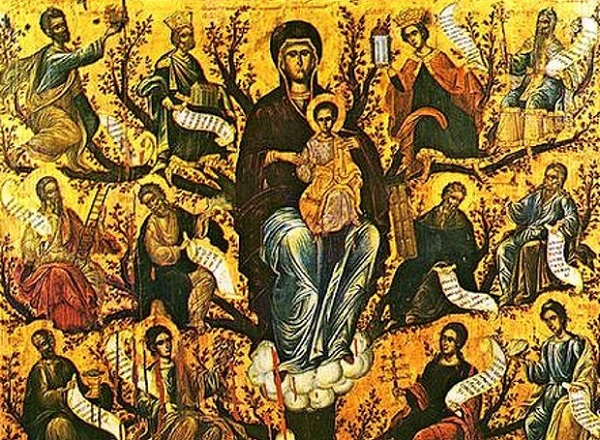Sunday before the Nativity
18 December 2022THE REALLY GOOD NEWS
When people ‘aren’t at their best’, as we say, what they don’t want to hear is bad news. On the contrary, their fervent wish is for good news ‘to fall into their lap’, so that they can take heart and get on with life. Incontrovertible proof of this is the recent change in viewing habits on the part of many of our fellow-citizens. You hear a lot of people saying: ‘I don’t want to watch the news… it’s all bleak and worrying’. And on the other hand, you hear: ‘At last, some good news… You’ve made my day… You’ve changed my mood’.

And in the middle of the search for good news, along come the feasts. People who are tired and frustrated look for a change of mood in the festal spirit. In the lights, the decorated trees, in the brightness of these days, they seek a ray of joy that will dispel the gloom and pessimism. Will they be able to find one, though?
Perhaps yes, perhaps no. But they’ll certainly achieve very little if they get no farther than the surface of the festive atmosphere, if they dwell on the external aspect of the days. Because behind the shell people erect every year in order to change their daily routine, there’s a unique event which they usually overlook or, at least, don’t stop to consider its significance.
This event is the advent of God into the world. What could be more important in human history? God, God himself, comes to humankind, becomes one of us, dwells among us, shares our anxieties, and in the end dies- in a dishonorable manner. And all of this, for what reason? To save us. To make us gods. To elevate us on high, to the heavens, for the purpose for which we were created.
Today’s Gospel (Matth. 1, 1-25) shows precisely the meaning of the word: Gospel = god spel = good news, that is glad tidings. On this Sunday before Christmas, Saint Matthew the Evangelist reminds us of the world-shattering event of God’s nativity. He who created the ages passes straight through all the ages of human history and becomes visible in the present. The Evangelist enumerates all Christ’s forebears. They’re people from all walks of life and every class. Kings and poor folk. Sinners and virtuous. Righteous and wicked. Because he wants to stress that God is not from ‘good stock’, in the way humans understand it. The Lord takes on human nature as a whole. He doesn’t choose only the good, the bright side, but rather he wants all of it. He takes the whole person and makes him or her a god. He also takes sin with him, in order to cleanse it.
This, my brothers and sisters, is the really good message for which, in truth, we’re waiting. What the peoples who are in the darkness of ignorance waited and wait for. It’s the message of liberation from that which binds us. He came, and we shouldn’t overlook the fact. God was born on earth and is born in the heart of every person who really seeks him. Let us open our hearts and then, believe me, the lights of the feast will no longer be ephemeral.






